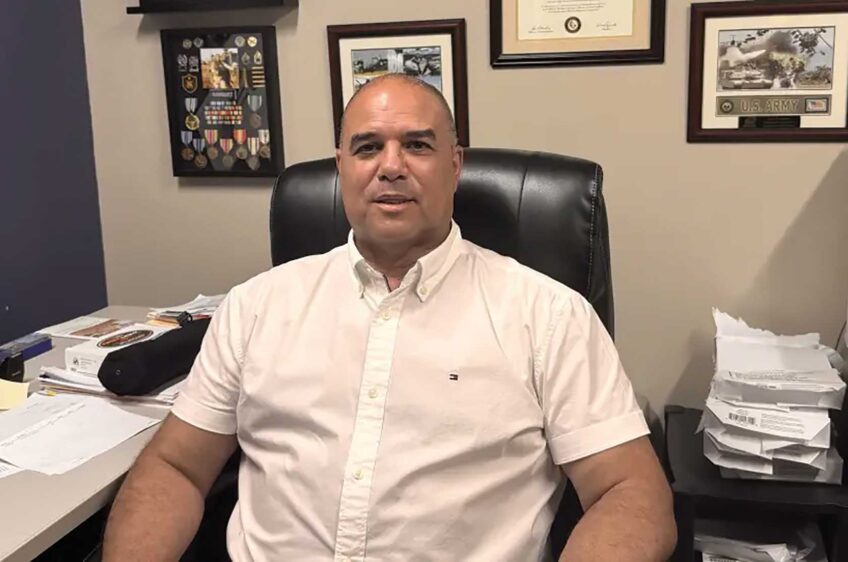
The Market Basket saga that took place this summer has been heralded as a labor protest like few seen before — so much so, that on Sept. 26 academics from MIT and Harvard joined together in Cambridge to discuss the potential impact the revolt can have on workers, employers and leaders in the future.
“What I think that leaders can learn from this is that they need to change the mental model that you do not need to make a choice between treating people fairly and making money,” said MIT Sloan School of Business Professor Deborah Ancona.
Ancona, who heads MIT’s Leadership Center, said that the efforts of Market Basket employees to fight for the return of fired Market Basket CEO Arthur T. Demoulas illustrated the loyalty that can be invoked by leaders who showcase care and concern for the wellbeing of their employees. “Loyalty breeds loyalty,” she pointed out.
She praised the structure of Market Basket, under Demoulas, that allowed for invested leadership at all levels of the company.
“This organization had that working for it before the crisis so that it was really ready to go into action,” Ancona said. “You had leaders at all levels that were ready and able to step into leadership positions… They had the confidence to step up and lead.”
In mid-July, Market Basket workers walked off the job at stores throughout the 71-location chain to protest the firing of Arthur T. Demoulas and other executives of the company by the board of directors. Protesters included executives, store managers, cashiers, store stockers, drivers and warehouse workers at the company, all risking their jobs to support the fired leaders.
Protesters held rallies at Market Basket headquarters and stores and enticed customers to boycott stores. With staff out, operations were crippled at many Market Basket locations, and estimates are that the company lost as much as $10 million a day during the saga, which stretched until late August.
The protest ended when the Market Basket board accepted a buyout offer that allowed Arthur T. Demoulas to return as CEO.
MIT Sloan Professor Thomas Kochan and Adjunct Professor Zeynep Ton, both of whom study labor and employment, have been analyzing the Market Basket case and led the forum, “Lessons from Market Basket,” held on MIT’s campus last Thursday night.
Moderated by WBUR reporter Curt Nickisch, panelists included Kochan, Ton and Ancona, along with fellow MIT Sloan faculty members Renee Gosline and Andrew Lo, as well as MIT political science professor Andrea Campbell. Other panelists included Harvard Kennedy School of Government Professor Marshall Ganz; Ownership Associates CEO Christopher Mackin, an advisor on employee ownership; and American Federation of State, County, and Municipal Employees organizer Kris Rondeau.
Ton said her interest in the case stems from the fact that it is unlike the typical labor dispute focused on pay and benefits, but instead had employees banding together to fight out of loyalty to their fired CEO and for preservation of the company’s culture and business model.
She also said the success of Market Basket’s efforts to offer low prices to customers, treat employees better and pay them more challenges the dominant assumption in business that labor is just a cost to be minimized.
“That is the mindset that needs to change because people are not a cost. People can be a significant asset,” Ton said. “I think we have to stop seeing people as a cost and change our mindset to seeing them as a strategic asset, as valuable resources.”
Ton pointed to other companies including Costco, Trader Joe’s and QuikTrip as businesses that have made an effort to balance long-term shareholder value, good pay and benefits, and highly competitive prices as Market Basket has done.
Lo, a finance professor at MIT, said a lesson learned from Market Basket on the financial end is that running a business only focused on short-term profits cannot be the only approach.
“Then Market Basket becomes like any other supermarket,” he said.
While some question whether the buyout needed to get Arthur T. Demoulas back as CEO — including an estimated $1.3 billion in debt to finance the sale — will put the company in a precarious financial situation, Lo said the company’s long-term vision and commitment to employees and customers has shown it can be profitable and will likely continue to be.
“The fact is that the Demoulas family launched this small business in 1917 and they grew it into an incredible behemoth — $4 billion annual revenues — a marvelous, privately held company that is a tremendous success,” Lo said.
Lo concluded that the real heroes in the story are the employees and the customers who fought to keep the tremendous success of Market Basket on the same path as it has been — with the same leadership culture — that has gotten it where it is today.
Union organizer Rondeau called what Market Basket’s employees did an inspiration to unions, even though Market Basket workers do not belong to a union.
“People in labor where surprised I think by what you did, and I think they were inspired because you went after an idea that workers, whether they are union or not union, are being told over and over again that slashing wages, cutting benefits and raising prices is the natural law, this is the way it is,” Rondeau said. “I think that for labor there was a pride and a feeling that, you know what, you can go after that idea.
She also said there are lessons to be learned by unions from the Market Basket example.
“What you did, bringing management and labor together is something that unions don’t usually do on the shop floor. The idea that a worker would be defined completely different, that a worker would be defined as someone who works in and cares about the company no matter what their position, this is an idea that could save us, frankly. It is an important idea,” she added.
Also in attendance at the forum, were a number of Market Basket employees, who supported the protest and risked their jobs in doing so.
Mark Owens, a manager of a Market Basket store, said he spent his life building the company and felt like he had no choice but to fight for something he felt he owned.
Jim Fantini, a Market Basket vendor with Fantini Bakery in Haverhill, Mass., also attended. Though his livelihood is directly tied to his company’s sales to Market Basket he said he also felt like it was necessary to support the protest. He called his choice to do so “instinct.”
“I never considered myself a vendor. I consider myself part of the Market Basket family,” Fantini said.






